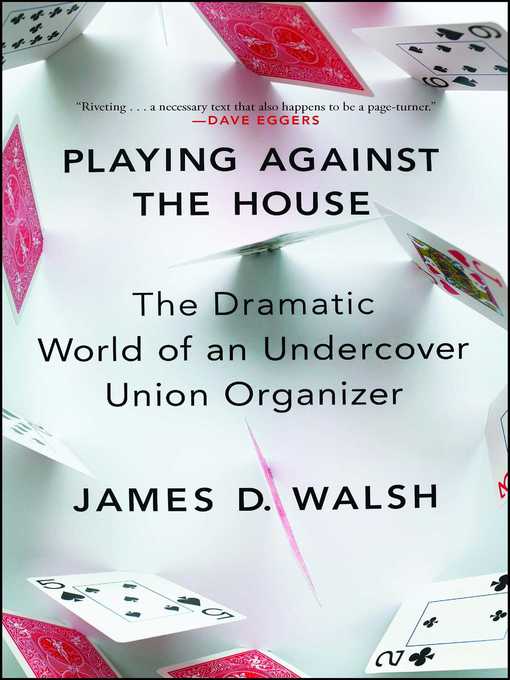
Playing Against the House
The Dramatic World of an Undercover Union Organizer
کتاب های مرتبط
- اطلاعات
- نقد و بررسی
- دیدگاه کاربران
نقد و بررسی

January 4, 2016
In his debut book, Walsh tells a personal story of low-wage workers struggling to stay afloat in service industry jobs where substantial tips are rare, hours are long, and employment is precarious. Walsh reports on his near three-year-long stint as a "salt," a union activist who joins a workforce to covertly organize it, while working as a bartender and buffet server in two South Florida casinos, Calder and Mardi Gras. With a balanced perspective and sharp eye, he reveals the tactics managers use to keep employees from unionizing. The book sketches in the history and politics of Florida's multibillion dollar casino industry, which is reliant on slot machines. It also examines casino culture, showing how Walsh's black coworkers were treated differently from white ones by both employers and customers. In an informative and gripping narrative, Walsh moves from the tactics of covert union organizing to the court case that will determine whether Mardi Gras employees who were fired for unionizing will regain their jobs. Walsh gives an insider's view of the gaming industry, placing the stories and struggles of his coworkers at the heart of this must-read book. Agent: David Black, David Black Agency.

January 1, 2016
A journalist navigates ethically tricky terrain as he helps attempt to organize union representation in Miami casinos. In his first book, New York magazine staffer Walsh undertakes a major challenge: to work as what the labor movement calls " 'salts, ' union activists who got jobs in non-union workplaces, intent on organizing them from the inside." There is nothing illegal about salting, though employers resistant to unions are adamantly opposed to such activity and might terminate the employment of someone engaging in it, particularly during a probationary period when it would be easy to invent some other excuse. So the author necessarily kept his recruitment a secret from those who hired him, as he surreptitiously attempted to find other workers who might be suitable for union leadership at the casino. However, he also kept his intention to write about his experience a secret from the union activists who had recruited him and who subsequently tried to prevent him from writing about such union organizing from the inside out. "So you were salting the salts?" asked his activist supervisor, who felt betrayed--though Walsh's sympathy throughout this narrative is with the unions that face such a difficult challenge recruiting the diverse population of minimum-wage service workers, many of them immigrants. Some of them agreed to enlist in the union effort, and some of them lost their jobs because of it, as the author did, though the risk and cost to him were a whole lot less than to those with bigger obligations and fewer options. The legal system would ultimately rule in favor of "The Mardi Gras Ten," with some--though not Walsh--given their jobs back with back pay. The author does an engagingly readable job of humanizing the labor battle, showing just how much power the corporations wield and how long they can wait. Walsh knows he's operating in "a gray area of journalistic ethics," and readers can decide whether he emerges on the right side.
COPYRIGHT(2016) Kirkus Reviews, ALL RIGHTS RESERVED.

























دیدگاه کاربران